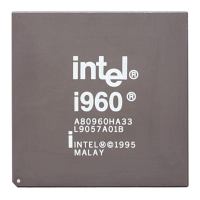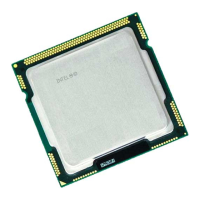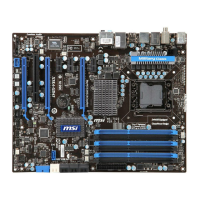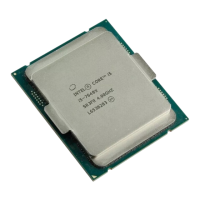i960 Processor Compiler User's Guide
3-32
3
This option implies the fdb option (described previously) that causes the
insertion of program database information in the object modules and the
creation of the program database. Since
fprof implies fdb, fprof also
implies a minimum module-local optimization level of O1 (although high
module-local optimization levels are allowed).
When you compile with the
fprof option, a special profiling library
required for profile collection (
libqf) is linked automatically. If your
target environment does not support file I/O, you must explicitly link an
alternate profiling library (
libq). The profiling libraries provided are
identified in Chapter 2 of the i960 Processor Library Supplement.
Note that when the
fprof option is used in this manner, the generated
object module contains code is unsuitable for linking into programs that
are not supposed to collect profile information. To solve this problem, and
avoid having inappropriate instrumentation in widely-used library modules
for example, use
+fprof with the gcdm,subst option instead.
Before using the
fprof option, you should read Chapter 4, Program-wide
Analysis and Optimization, Chapter 5, Profile Data Merging and Data
Format (gmpf960), and Chapter 6, gcdm Decision Maker Option.
f (Additional Fine-tune)
Additional optimization
adjustments.
f [no-]
arg
arg
is any one of the optimizations listed below. This option takes only
one argument; use a separate
f option to enable/disable an optimization.
The
f [no-]
arg
option is supported to allow access to optimization
controls that are supported by the gcc960 compiler driver.
